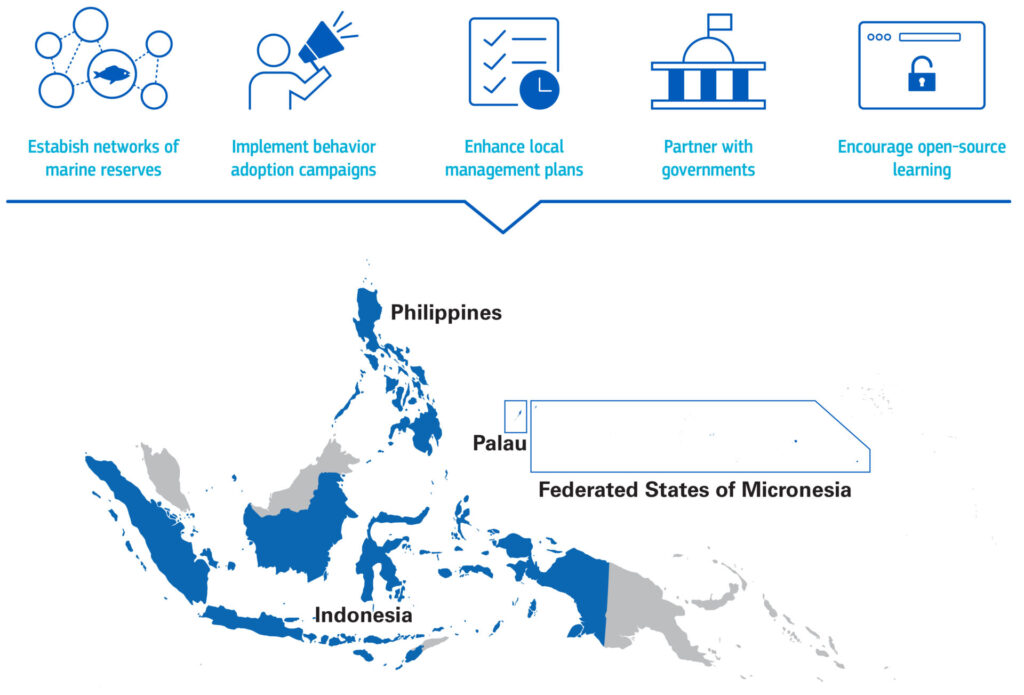Fishing for Climate Resilience
Empowering marginalized, fisheries-dependent communities in the Asia Pacific region to adapt to climate change
The Issue
Climate change is taking its toll on the world’s ecosystems, fisheries, and the people that depend on them for their food and livelihoods. This is no truer than in the Asia Pacific region.
Years of unsustainable fishing practices, poverty, and poor law enforcement have already damaged the coral reefs, mangrove forests, and seagrass beds that support coastal life and protect against climate change’s many effects (e.g., increasing waves, storms, and floods). With climate change happening at an unprecedented pace, scientists predict that these habitats will worsen in the coming years, leaving marginalized, small-scale fishing communities and marine-dependent economies to bear the brunt of climate change impacts.
The Solution: Fishing for Climate Resilience
With support from Germany’s International Climate Initiative (IKI), Rare and partners are empowering these small-scale fishing communities to adapt to climate change through Ecosystem-based Adaptation (EbA) approaches. The project is implemented across the following countries: the Philippines, Indonesia, Federated States of Micronesia, and Palau.
What is Ecosystem-based Adaptation?
Stay Connected
Sign me up for occasional emails to learn more about Rare’s work and how I can support its mission.
I know I can unsubscribe at any time.
Why the Asia Pacific Region?
It hosts the planet’s most diverse and endemic-rich marine life.
It contributes 65 percent of the world fisheries production.
More than eight in ten of the world’s families reliant on fishing for livelihoods live here.
How we do it

Supported by:
